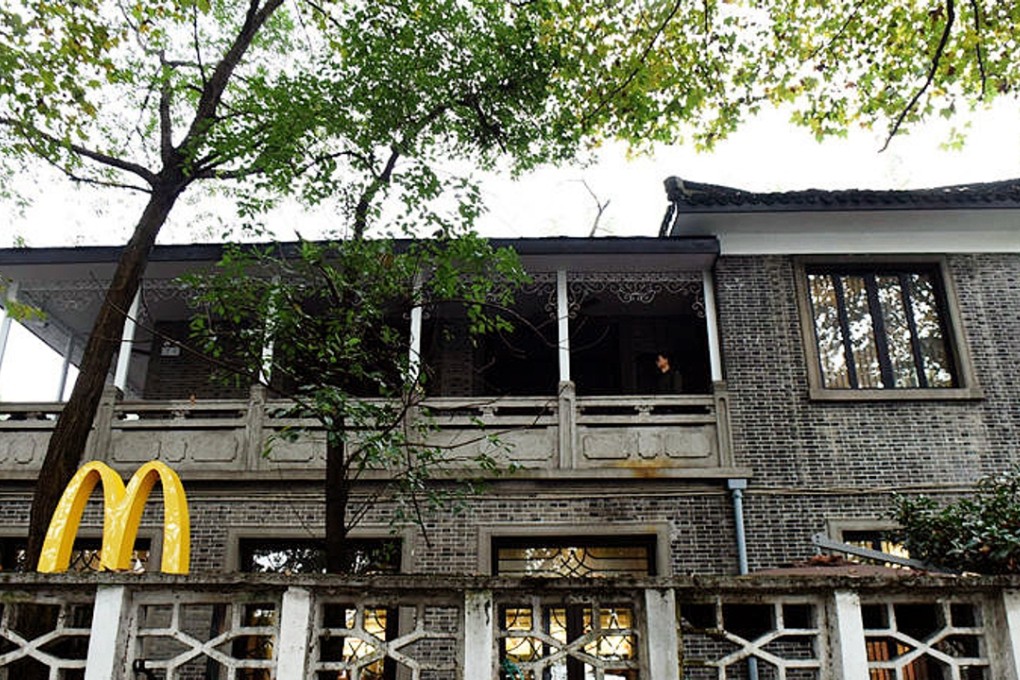Fast feud after China civil war icon's refuge becomes a McDonalds
Home built on shores of scenic Lake Hangzhou in eastern mainland in 1931 was villa for KMT leader Chiang Kai-Shek's son, and locals aren’t lovin’ it

A villa once occupied by the son of late Taiwanese leader Chiang Kai-shek has been turned into a McDonald’s restaurant, despite strong objections from the public, Chinese media reports.
The villa was built in 1931 on the shores of scenic West Lake in Hangzhou in the eastern province of Zhejiang on the Chinese mainland.
At the time, Chiang Kai-shek’s Kuomintang (KMT) army was locked in a civil war with Mao Zedong’s Communist Party forces.
Chiang’s son, Chiang Ching-kuo, stayed in the villa for about a month in late 1948, just before the KMT lost the war and fled to Taiwan, where they established a new government.
Beijing has regarded the island as a renegade province ever since.
The villa is listed as a cultural heritage site by the Hangzhou government, and in January the lake’s management committee carried out a public consultation on leasing the building out as a McDonald’s, the Beijing Youth Daily reported on Tuesday.
Some residents supported the idea, arguing that the rental income would help cover the building’s substantial maintenance fees. But the majority of the public opposed the plan, saying the villa should be kept as a historical venue.